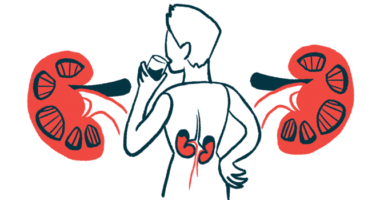Managing itching and dryness with liver conditions
Last updated March 31, 2025, by Roslyn Marano

When you have a liver condition, like liver disease or liver failure, you may experience unexpected symptoms like dry, itchy skin and skin rashes.
These symptoms can impact your daily life by making you uncomfortable and disrupting sleep. Knowing what causes dryness and itching, and making key lifestyle adjustments, can help improve your quality of life.
How liver conditions affect the skin
Several types of liver diseases can cause skin-related symptoms, including:
- primary biliary cholangitis, previously known as primary biliary cirrhosis
- primary sclerosing cholangitis
- liver cirrhosis.
A common issue for people with impaired liver function is hepatic itch. This is likely caused by the buildup of bile salts, which are made of bile acids, in the bloodstream. Itch, also referred to as pruritus, can become persistent, often worsening at night, and can significantly affect sleep.
Liver dysfunction can also lead to dry skin, skin rashes, and irritation.
Changes in blood vessels related to liver disease, such as spider angiomas and portal hypertension, can contribute to skin alterations due to poor circulation and increased pressure in the liver’s blood vessels.
In some cases, vascular abnormalities may be a sign of advanced disease, including liver cancer.
General lifestyle adjustments
Certain lifestyle changes can help to improve skin health in people with liver conditions. Making adjustments to your hydration, nutrition, and daily habits can lessen discomfort and promote overall well-being.
Stay hydrated
Proper hydration is essential for liver function and skin health. Drinking enough fluids, especially water, helps flush out toxins, supports digestion, and keeps the skin moist.
Other liver-friendly hydrating options include:
- coconut water, which is rich in electrolytes and helps to maintain fluid balance
- fruit-infused water, such as with lemon, oranges, or berries, to offer some flavor to plain water
- herbal teas, such as milk thistle and green tea.
Limit caffeinated and alcoholic drinks, as they can be dehydrating and increase liver strain.
Nutrition for better skin health
A well-balanced diet can improve skin conditions linked to chronic liver diseases by helping reduce inflammation, improving skin hydration, and supporting cell repair.
Omega-3 fatty acids, antioxidants, and vitamin E are key in strengthening the skin barrier and minimizing irritation.
- Salmon, flaxseeds, and walnuts contain omega-3 fatty acids, which can help lessen inflammation, enhance skin elasticity, and prevent dryness.
- Berries and dark leafy greens contain antioxidants, which can protect skin cells, and promote a healthy complexion.
- Almonds and sunflower seeds contain vitamin E, which affects skin moisture retention and overall health.
Avoid processed foods, which can trigger inflammation and worsen skin-related symptoms. Instead, focus on whole, nutrient-dense foods like berries and salmon, which support liver function and skin health, for fewer flare-ups and skin irritation.
Skin care tips
A few simple skincare changes can go a long way in relieving itching and dryness.
Moisturizers and hydration
When the liver has problems producing bile or if there’s a disruption in bile flow, it can make the skin itchy. Liver impairment can also lead to skin dryness. A few ways to counteract liver-related dryness include:
- using fragrance-free, hypoallergenic moisturizers
- applying a moisturizer immediately after bathing
- running a humidifier at night to prevent excessive skin dryness.
Soothing itchy skin
To relieve discomfort from liver-related itch, apply lotions and moisturizers for a soothing effect, and use gentle cleansers to avoid stripping natural skin oils.
You can also take lukewarm showers instead of hot ones, as heat worsens dryness and irritation.
Avoiding irritants
Liver disease can make the skin more sensitive. Reduce irritation by:
- using skincare products designed for sensitive skin
- wearing soft, breathable fabrics like cotton to minimize friction
- avoiding synthetic materials, which can trap heat and worsen itching.
Medical treatments and remedies
Medical interventions may be necessary if itching and dryness do not improve with basic skincare and lifestyle adjustments.
Over-the-counter options
Some antihistamines, hydrocortisone creams, and anti-itch lotions can temporarily relieve skin rashes and itching. However, overuse can lead to skin irritation. If symptoms persist or worsen, consulting a healthcare provider is crucial.
When to consult a doctor
See a doctor if your itching worsens, leads to skin infections, or interferes with daily life. Based on the underlying liver condition, prescription treatments may be recommended, including bile acid binders or certain medications that support bile flow. Experimental therapies for itch associated with liver diseases are currently being tested in clinical trials.
Some studies looked at the role of lysophosphatidic acid as a trigger in liver-related itching and potential targeted therapies. Addressing the root cause of liver-related issues is key to long-term symptom relief.
Managing dryness or itchy skin caused by liver disease requires a combination of hydration, nutrition, skincare, and medical treatments. These proactive steps can improve quality of life and minimize discomfort.
Liver Disease News is strictly a news and information website about the disease. It does not provide medical advice, diagnosis, or treatment. This content is not intended to be a substitute for professional medical advice, diagnosis, or treatment. Always seek the advice of your physician or other qualified health provider with any questions you may have regarding a medical condition. Never disregard professional medical advice or delay in seeking it because of something you have read on this website.
Recent Posts
- Hepatitis E virus can also infect kidney cells: Study
- Nearly half of PBC patients in US haven’t seen a specialist recently
- Eating healthy over the summer is vital with liver disease
- Recurrent ICP linked to condition’s severity in 1st pregnancy
- Learning to worry a little less as we stick to our son’s care plan
Related articles






